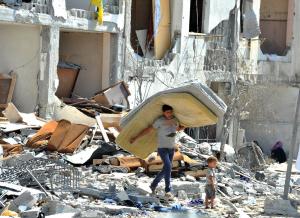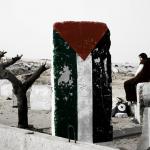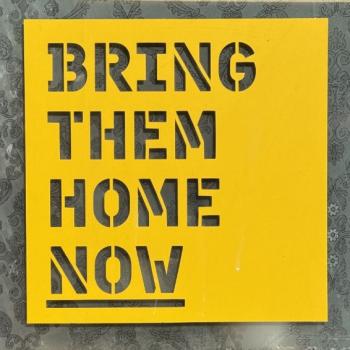From what I’ve seen, more people are engaging with the latest Holy Land crisis than ever before. People who never cared about international issues in the past are interested. Most are willing to learn. There will always be some who have it all figured out, but their numbers may be dwindling a bit.
(NOTE: Before I jump into today’s topic, I want to clarify something from one of my Ramadan posts: when I talked about people who are unable to fast, and who give to charity instead, I neglected to mention some other exceptions to fasting. As a reader pointed out, if someone is sick or traveling, “it is also permissible to fast an equal number of days at any time before the next Ramadan. There are rules, but there is also compassion, mercy, and flexibility.” I concur. In my experience, have found true Islam to be very compassionate. Now back to our regularly scheduled program.)
If you are following the news, you know that there is basically a “war” going on between Israel and Hamas (I put “war” in quotation marks, because as you’ll see, it’s not a war – it’s an invasion and massacre). You know that Hamas rockets have been flying out of Gaza and Israeli bombs have been dropped on Gaza.
Since the two sides are obviously trading armaments and causing destruction, the simple response for armchair enthusiasts – especially those who love peace – is to say, “both sides need to settle down and stop the violence.”
I’m here to say that that’s not the solution.
If you’ve been reading my blog for any amount of time, you know that my husband is Palestinian, born in Gaza, and we have family still living in Gaza. My full-time gig is researching and writing about the Palestinian issue – separating fact from fiction and truth from propaganda (actually, the current escalation has kept me so busy, I haven’t posted here in awhile).
(BTW, I will be writing more about Gaza – please sign up for my newsletter to stay on top of this important issue!)
I have participated in many debates and corrected many misconceptions about Israel and Palestine in my time. Today I’d like to talk about one of the most pervasive notions among those dabbling in Middle East politics:
“Israel and the Palestinians need to stop their violence and work on peace/the loss of any life on either side is a tragedy.”
The above statements are not false. But they imply an equivalence that is false. The statements infer (whether intentional or not) that both sides have been roughly equally violent and have had approximately equal tragic losses. This is far from the truth.
Many of us are hyper-sensitive about criticizing Israel, afraid we might sound “antisemitic,” and so we form our sentences carefully, making sure not to blame Israel for any transgression unless we also blame the Palestinians. It also makes us sound “fair and balanced.”
But it’s neither fair nor balanced.
“Both-ism” disregards the massive losses (of family members, land, economic stability, and dignity to name a few) that Palestinians have suffered. For example:
- Since 2008, 4 times (including the current situation) Israel has manufactured “war” with the people of Gaza. In these aggressions, Israel has killed close to 4,000 Gazan Palestinians; Palestinians have killed a little over 100 Israelis.
- In the “peacetimes” in between these aggressions (and the 8 years before the first one), 141 Israelis and over 3,500 Gazans have been killed (if you add in Palestinians killed in the West Bank, the number is much higher).
- In the 14 years that Israel has blockaded Gaza (almost nothing coming in or going out of the enclave), Gaza’s economy has lost an estimated $16.7 billion, resulting in massive unemployment and poverty.
Israel has suffered few ill effects due to these “wars” and the blockade.

False equivalence adds more injustice on top of the injustice Palestinians have already endured: it ignores the years of suffering they’ve borne without fighting back (for example, the 19 months of nonviolent protests in 2018-2019 when Israeli snipers killed them with impunity). And it essentially places equal blame on the victim and the aggressor.
Both-ism also, significantly, overlooks the fact that Israel has been occupying and besieging Gaza, and the people are resisting their oppressor – and while Israel’s actions are against international law, resisting occupation is lawful.
So while both-ism has a veneer of impartiality, it is deeply unjust. That’s why, when Jesus condemns the Pharisees who brought him the woman caught in adultery, you won’t see him equally condemning her the Pharisees who brought her (John 8:1-11); that’s why, in Jesus’ parable of the Pharisee and the tax collector, he didn’t criticize the tax collector as well as the Pharisee (Luke 18:9-14).
The tax collector and the woman were sinners too, but Jesus focused his judgment on those who had power and used it to oppress or put people down.
In short, Jesus invariably sided with the oppressed. Period.
When you talk about the conflict in the Holy Land, please keep it in context. Israel has one of the most powerful armies in the world, and Gaza has no army; Israel has hi-tech weaponry, but Gazans make their own rockets from scraps; Israel has kept Gaza in deep poverty and starvation for years, while Gazans have done little to fight back.
Gaza and its leadership are imperfect, no doubt – but both-ism does a disservice to the cause of justice.
MORE POSTS YOU MIGHT BE INTERESTED IN:
Ramadan for Christians: fasting in wartime
Easter for us, but Palestinians are still in Gethsemane
“When I was hungry, you handcuffed me” – see Jesus in Palestinian children
Do you know God’s will for you, or just assume you know?
FEATURED IMAGE: “Scenes from Gaza Crisis 2014” by United Nations Photo is licensed under CC BY-NC-ND 2.0













